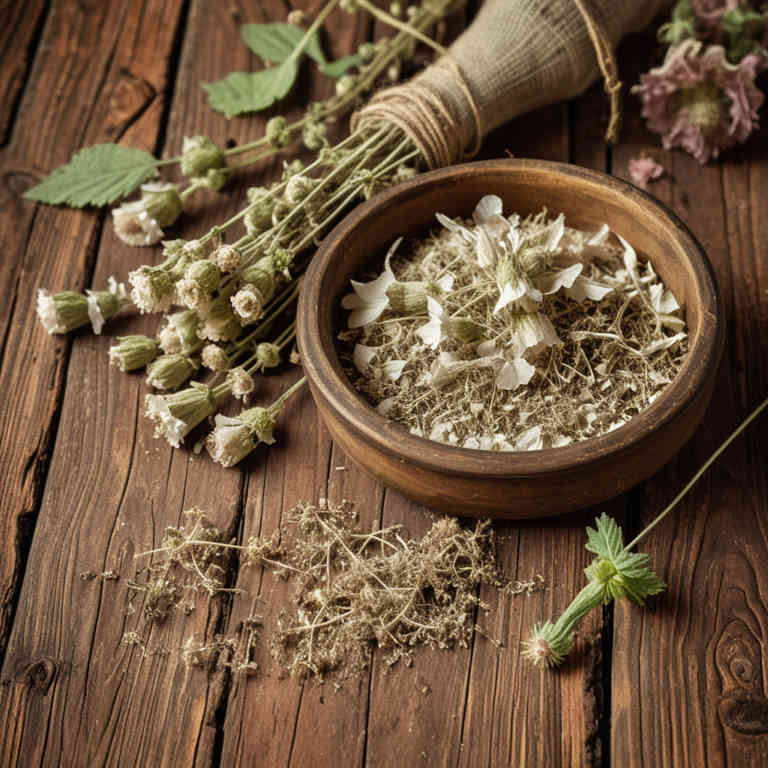Althaea officinalis decoction for medicinal use

Althaea officinalis decoction is a preparation made by boiling the roots or leaves of the marshmallow plant.
It is commonly used in herbalism for its soothing and demulcent properties. This decoction is often employed to alleviate symptoms of respiratory conditions such as coughs and bronchitis. It can also be used to soothe irritated mucous membranes in the digestive tract.
Its mild nature makes it suitable for use in children and during pregnancy under professional guidance.
Uses
Althaea officinalis decoction has been used to soothe respiratory and digestive tract irritations for centuries.
Historically, it was valued in ancient Egypt, Greece, and Rome for its calming effects on coughs, sore throats, and gastrointestinal discomfort. Traditional herbalists often prepared it as a demulcent to coat and protect mucous membranes. In modern times, it is still used in herbal medicine to alleviate symptoms of bronchitis, sore throat, and digestive issues.
Its mucilage content continues to make it a popular remedy in both traditional and complementary medicine practices.
Benefits
Althaea officinalis decoction has health benefits such as soothing respiratory issues, reducing inflammation, and supporting digestive health.
It is commonly used to alleviate symptoms of coughs, sore throats, and bronchitis due to its mucilage content, which forms a protective layer over irritated tissues. The decoction may also help with gastrointestinal discomfort by acting as a demulcent, easing conditions like gastritis or irritable bowel syndrome. Additionally, it possesses mild antimicrobial properties that can aid in fighting infections.
Overall, Althaea officinalis decoction is valued for its calming and healing properties in traditional and modern herbal medicine.
Constituents
Althaea officinalis decoction active constituents include mucilage, alkaloids, flavonoids, and tannins.
Mucilage is the primary active component, known for its demulcent properties that soothe irritated mucous membranes. Alkaloids may contribute to its anti-inflammatory effects, while flavonoids provide antioxidant support. Tannins help in reducing inflammation and may aid in digestive health.
This herbal preparation is commonly used to alleviate symptoms of respiratory and gastrointestinal tract irritation.
Preparation
To make Althaea officinalis decoction, begin by gathering 1 to 2 tablespoons of dried Althaea officinalis leaves or roots.
Place the herb in a pot and add approximately 1 cup of water. Bring the mixture to a boil, then reduce the heat and let it simmer for about 15 to 20 minutes. Strain the liquid through a fine mesh strainer or cheesecloth to remove the plant material.
Allow the decoction to cool slightly before consuming, and it can be taken 2 to 3 times daily as needed.
Side Effects
Althaea officinalis decoction may lead to gastrointestinal discomfort, including nausea, vomiting, and diarrhea, particularly in high doses.
It can also cause allergic reactions in individuals sensitive to the plant, such as skin rashes or respiratory symptoms. Prolonged use may result in dependency or reduced effectiveness due to the body's adaptation to the herb. In rare cases, it may interfere with certain medications, especially those affecting the kidneys or heart.
It is important to consult a healthcare professional before using this preparation, especially for pregnant or nursing women and those with preexisting health conditions.